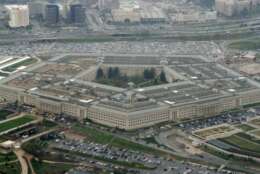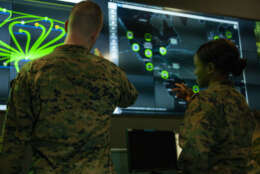Defense
-
In today's Federal Newscast, during its 20 years in Afghanistan, no specific agency had the mindset, expertise or resources to develop the country, according to the Special Inspector General for Afghanistan Reconstruction.
August 18, 2021 -
Acquisitions can go wrong when the agency downplays price, but makes an award on price anyway.
August 18, 2021 -
The data-driven approach will give DoD a better advantage over near-peer competitors.
August 17, 2021 -
Drew Malloy, technical director for DISA’s Cyber Development Directorate, said his team must segregate data between real-time systems and the historical stores.
August 17, 2021 -
For analysis, Federal Drive with Tom Temin spoke with senior fellow at the Center for Growth and Opportunity at Utah State University Will Rinehart.
August 17, 2021 -
The former intelligence employees argued that their prepublication reviews took too long and redacted unclassified information.
August 17, 2021 -
The contracts will develop the integration of the autonomous core system and continued operational experimentation through 2022.
August 16, 2021 -
The FAA now has another partnership aimed at making it easier on companies trying to conduct launches.
August 16, 2021 -
New technology though could soon make it easier to repair satellites without having to decommission, or sometimes even sending a human repairman.
August 16, 2021 -
In it's latest rendition of it's Hyperspace Challenge, this year the Air Force Research Laboratory is looking for technology that can provide the government and participating military agencies with secure, trustworthy autonomous and automated solutions for space.
August 16, 2021 -
This moving season is proving to be chaotic as people who delayed moves during the COVID-19 pandemic stampede to relocate and companies struggle with labor shortages.
August 13, 2021 -
There's a lot of untapped talent in the National Guard and reserve forces. Now the Defense Innovation Unit has come up with an artificial intelligence application to help close the gap.
August 13, 2021 -
Since last year, the Labor Department has adjusted its approach to collaboration while the Air Force is using more virtual and augmented reality.
August 13, 2021 -
Illegal fishing is bad, not just for fish populations. It can threaten food supplies, the marine ecosystem, even geopolitical stability.
August 13, 2021 -
The Cyberspace Solarium Commission finds more than a third of its original 82 recommendations have been met, or are on the verge of being met.
August 13, 2021
















